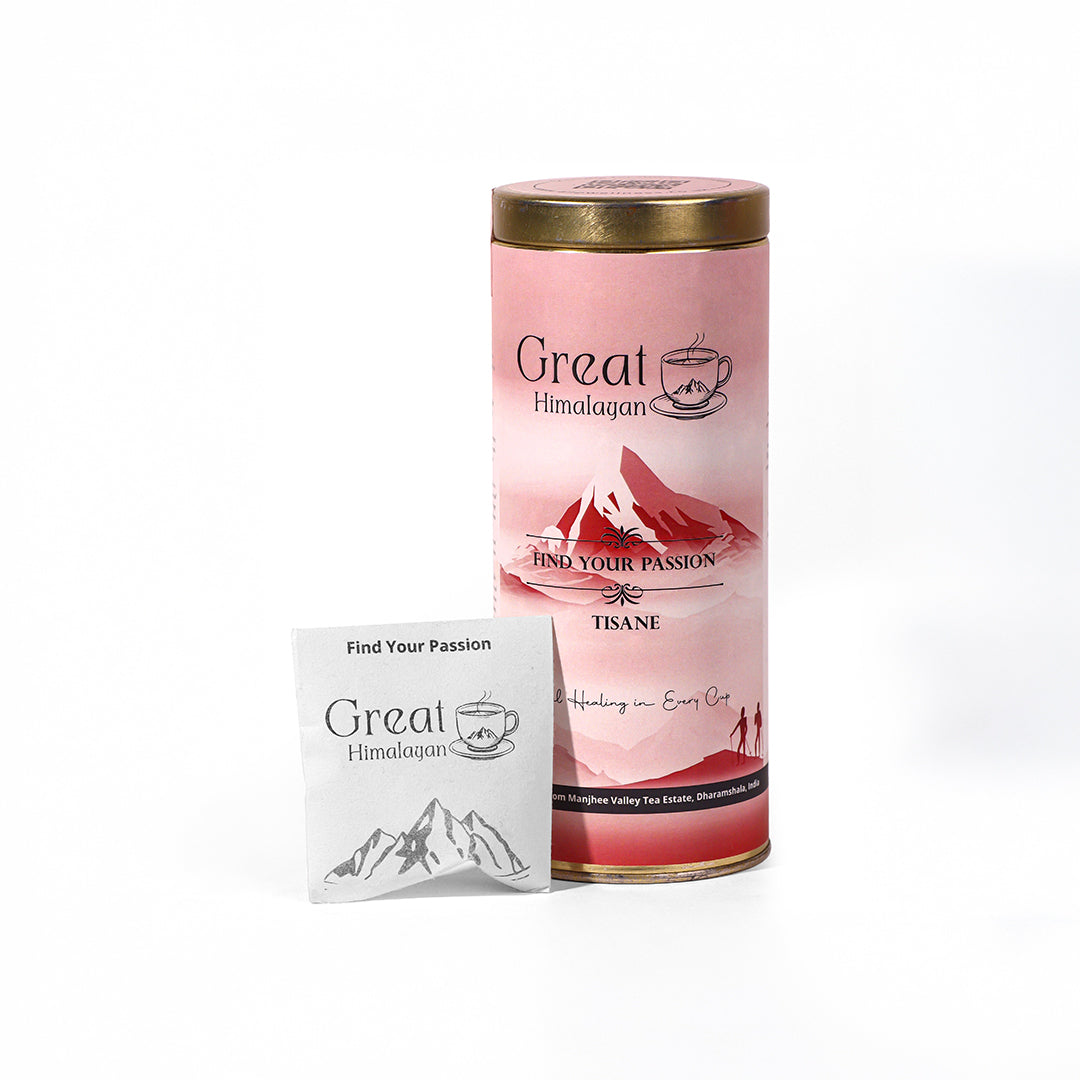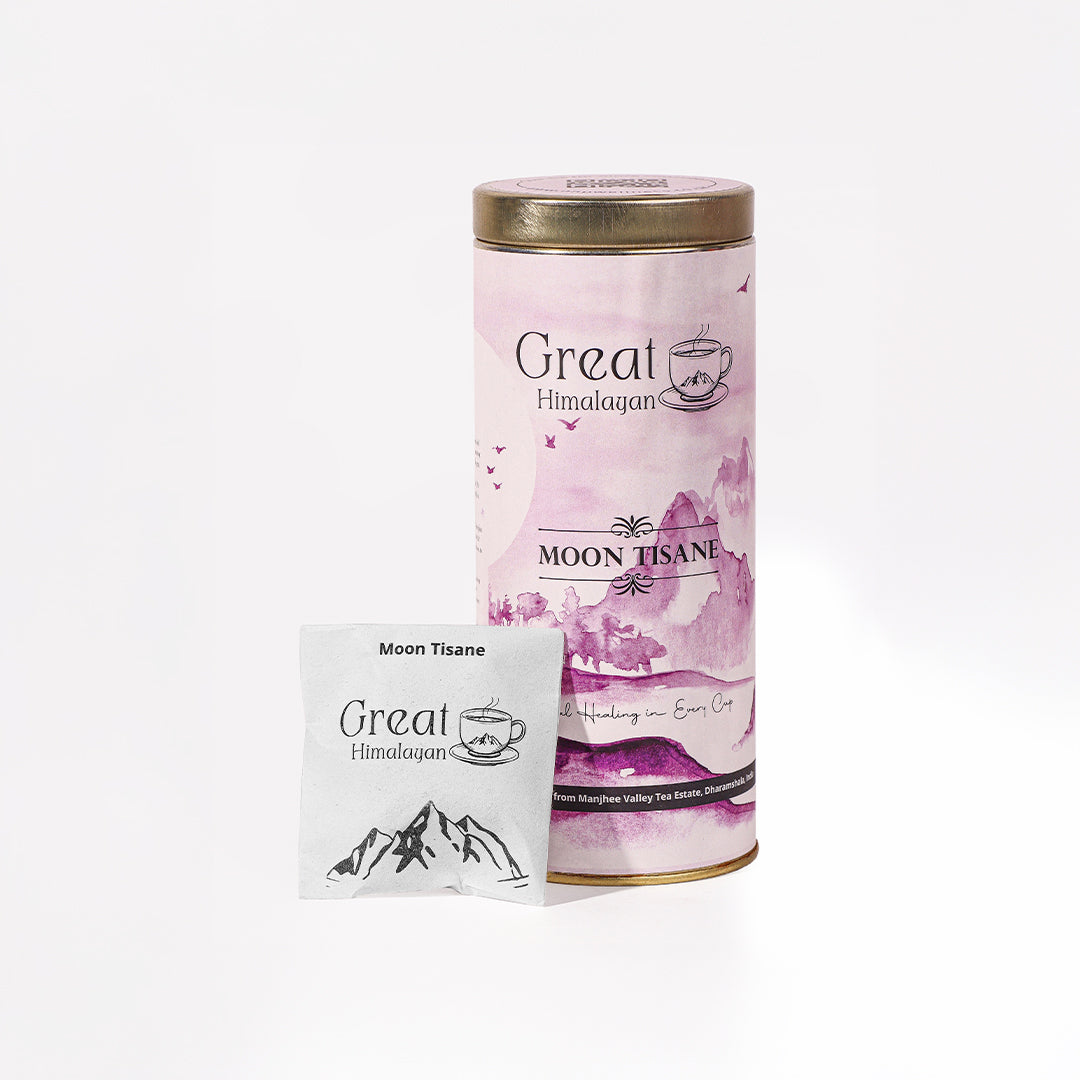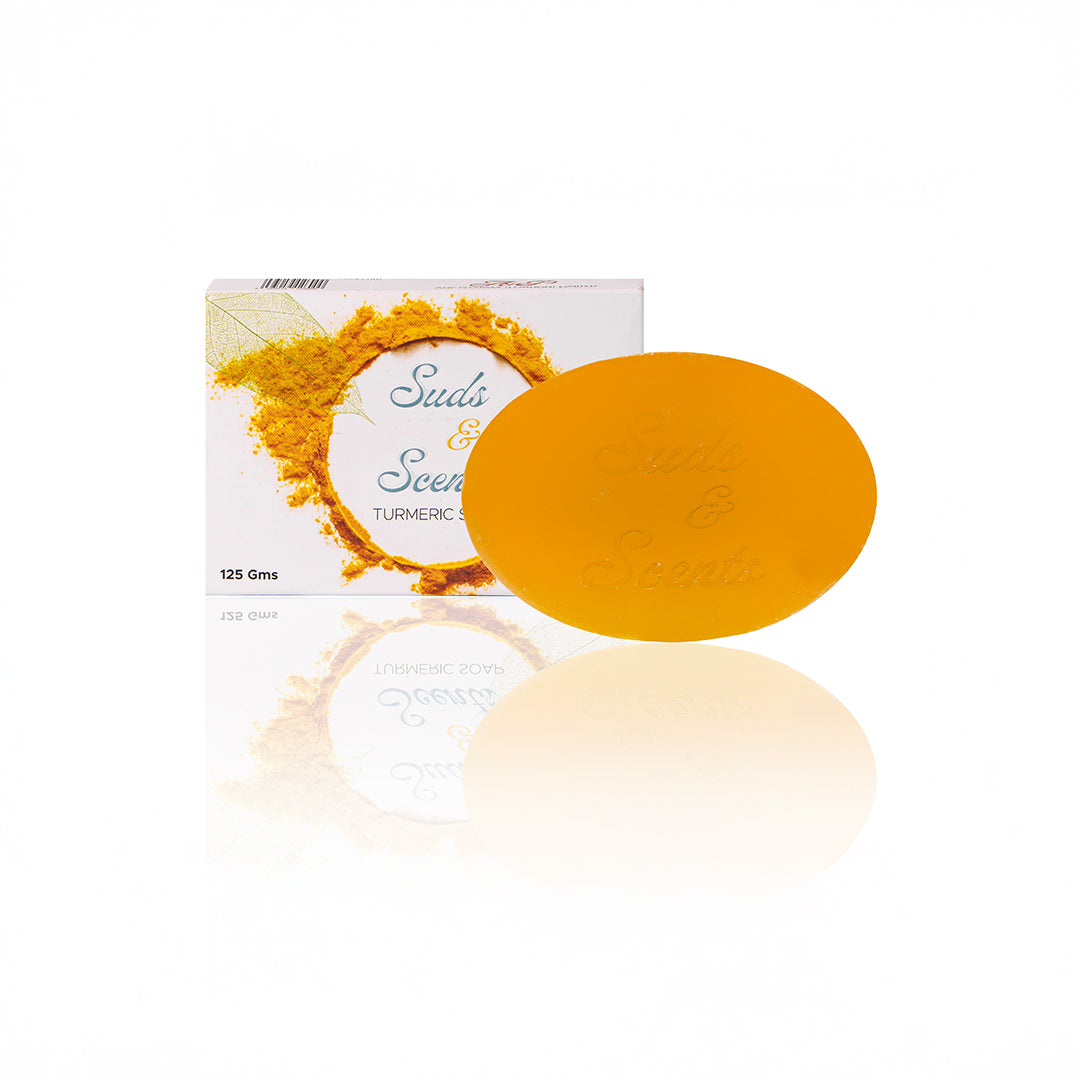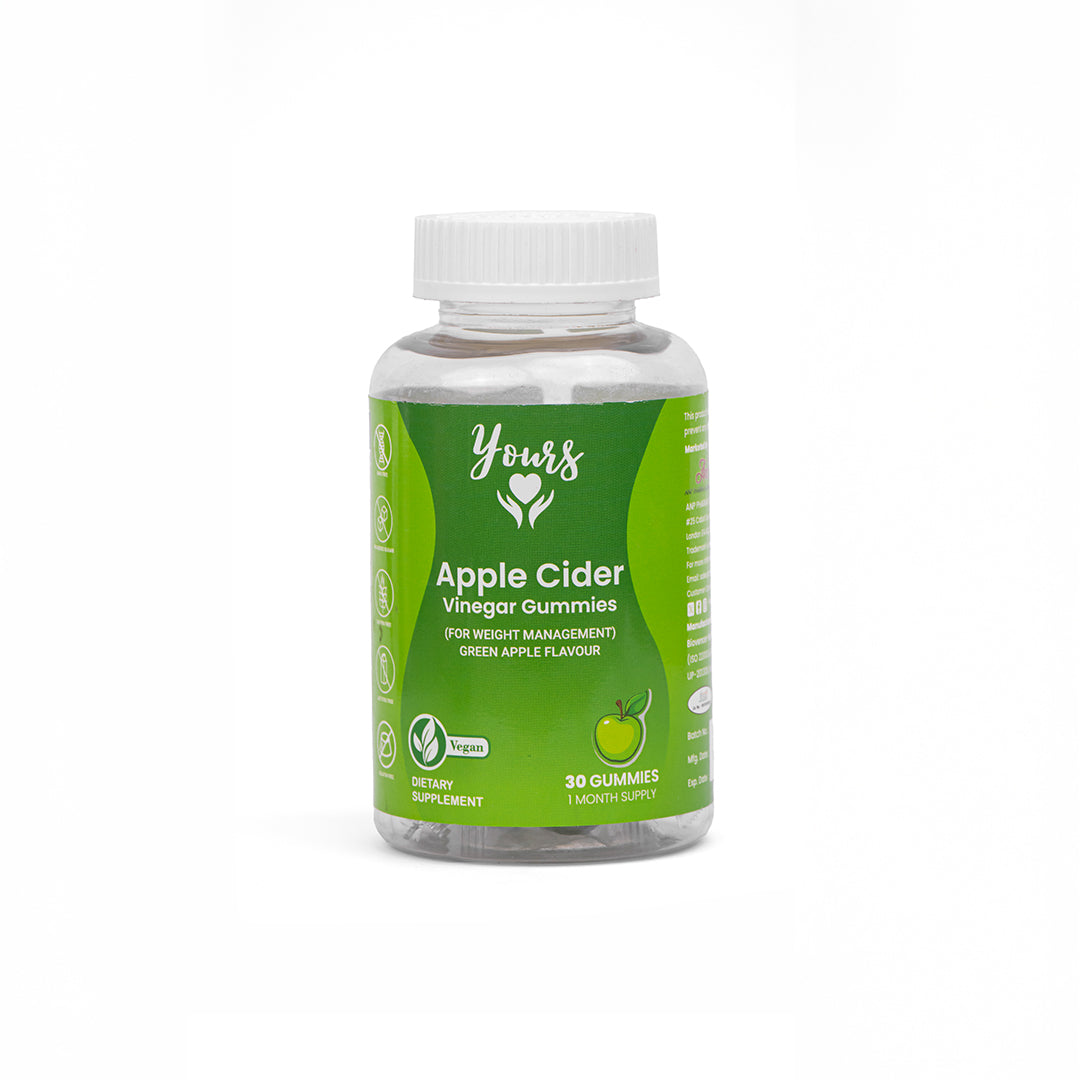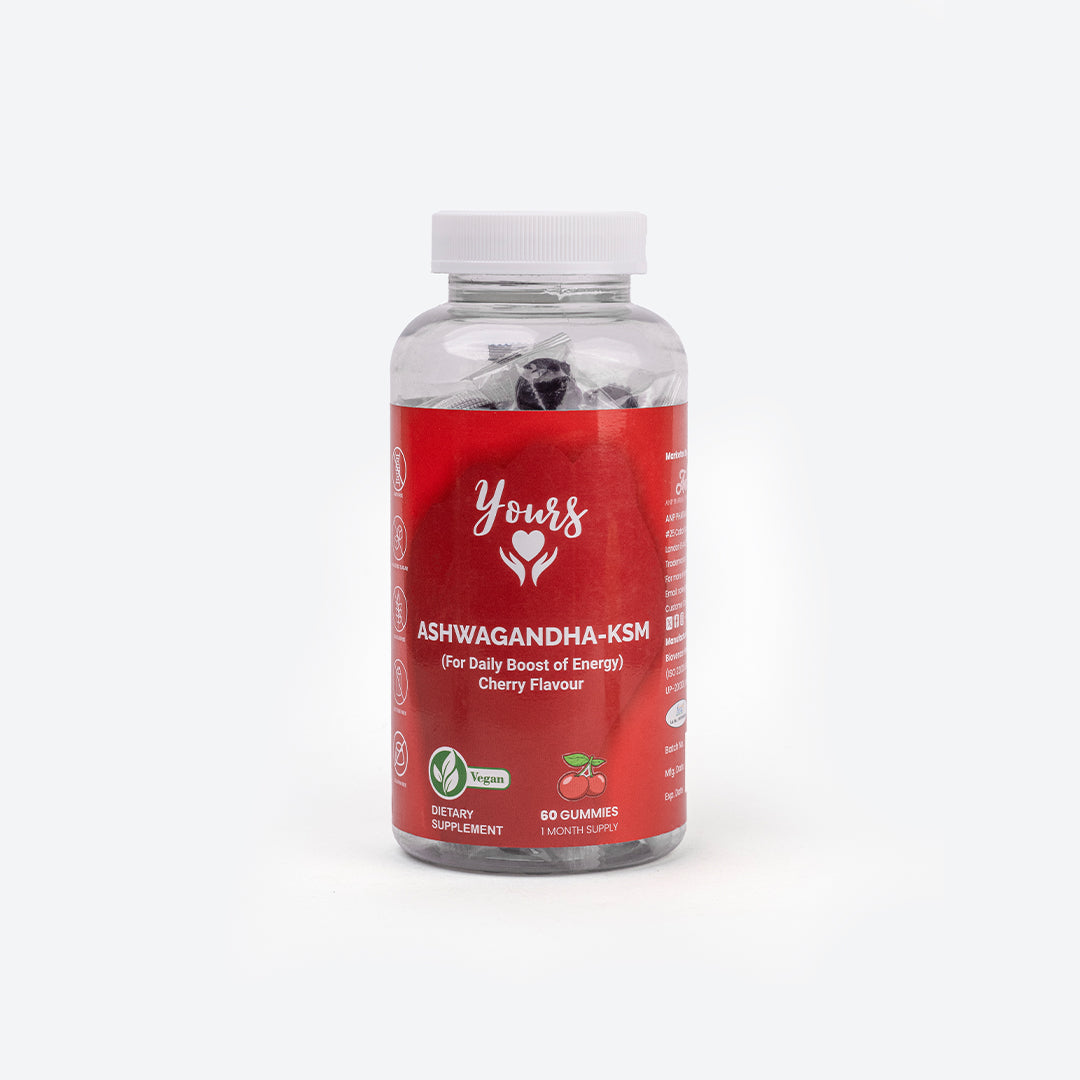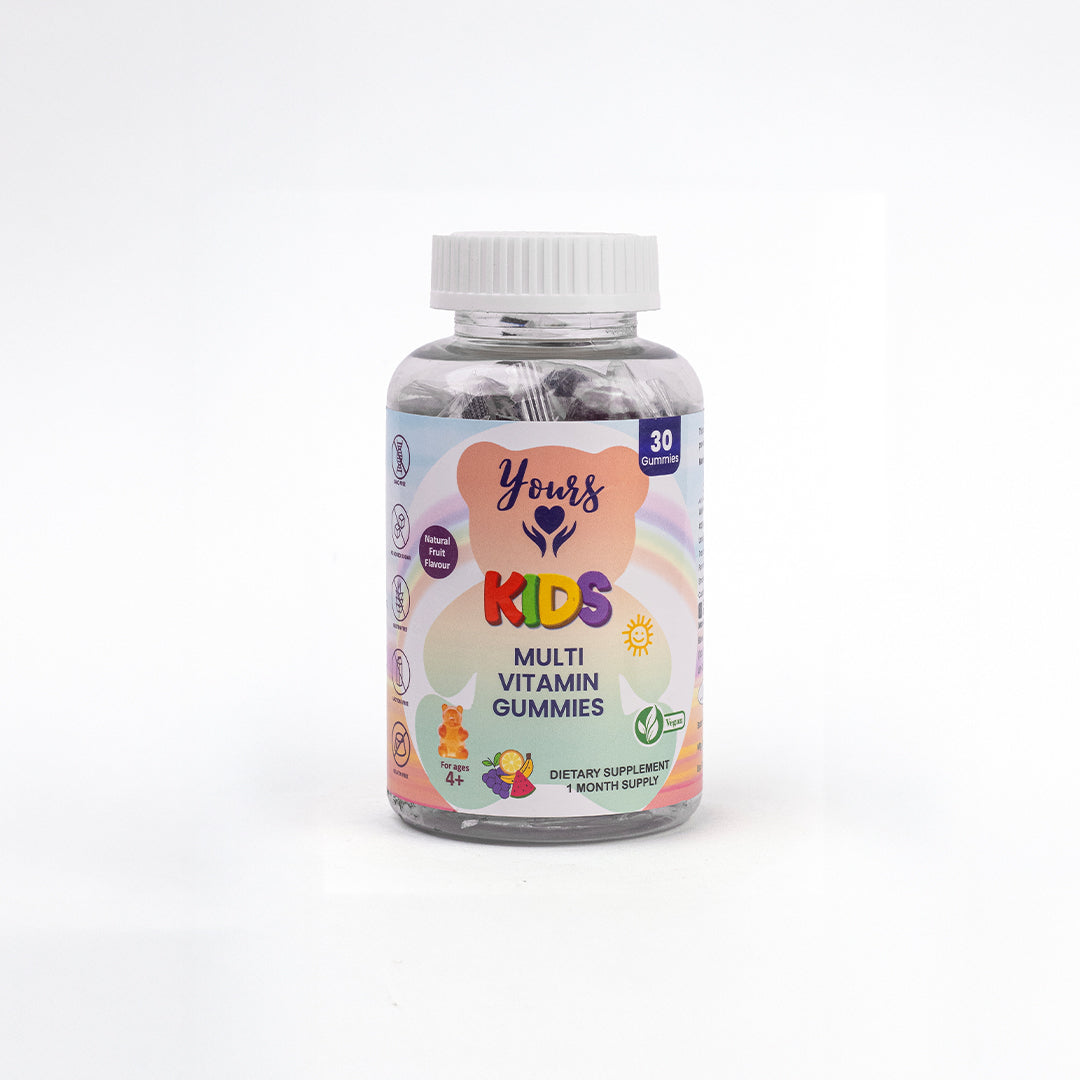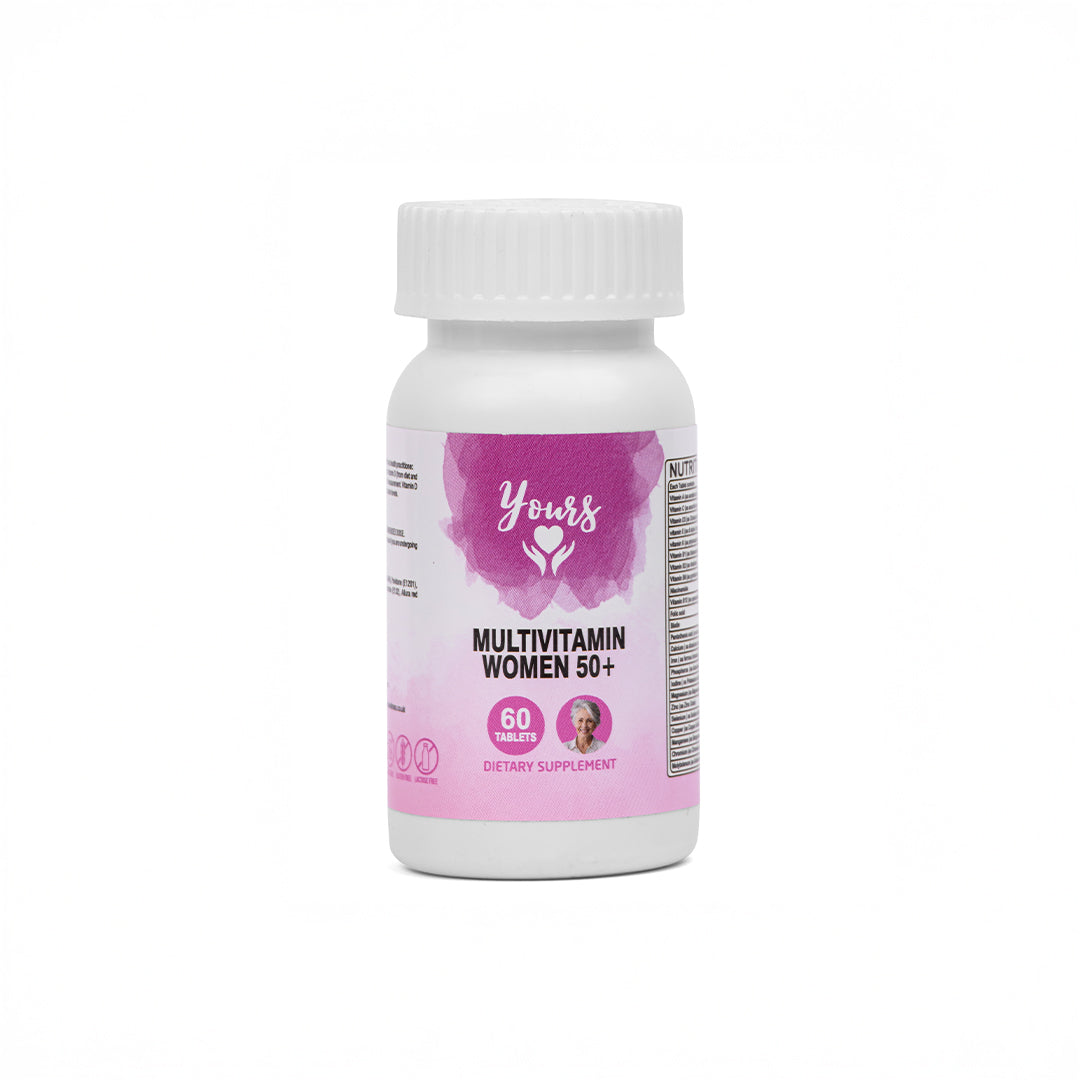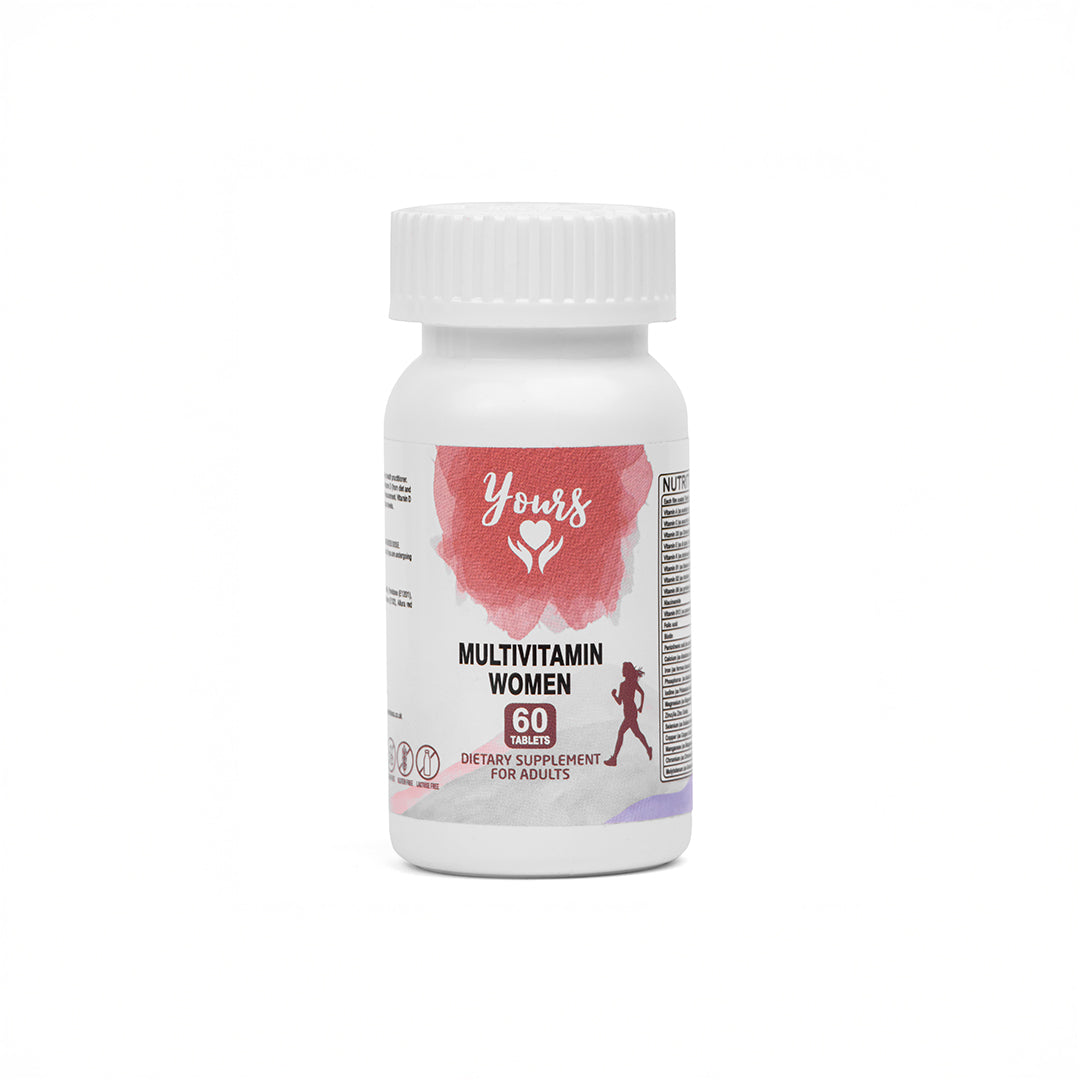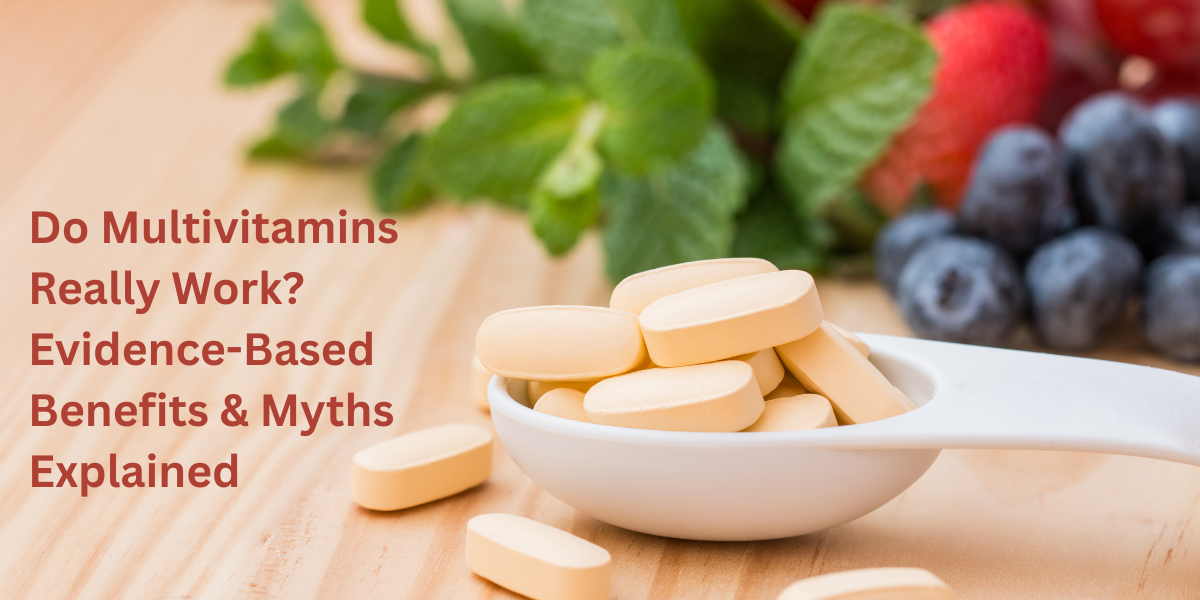Step into a health store or pharmacy in the UK, and you’ll encounter shelves lined with multivitamins promising everything from better immunity to more glowing skin. With so many people depending on them every day, why aren’t they high in quality? Millions of people depend on them every day. And after more than a century, it’s still worth asking: Do multivitamins really work or are they just another hokum modern wellness myth?
The debate is not new. And while some experts swear by the health-enhancing power of multivitamins, others believe a balanced diet should provide us with whatever we need, nutritionally speaking. Consumers are often at a loss, poised between shiny marketing slogans and contradicting scientific research.
This blog examines the benefits of multivitamins, dispelling myths and giving you a clear understanding of whether or not these supplements are worth putting in your wellness routine. We’ll also spotlight trusted UK-based wellness brands like ANP Wellness, which are committed to formulating expert-developed multivitamins with a clean label and scientifically backed for real health outcomes.
What Are Multivitamins? A Quick Refresher
Before we get into whether multivitamins “work,” it’s important to clarify what they are. At the very basic level, multivitamins are dietary supplements that contain an assortment of important vitamins and minerals (vitamin A, C, D, E, K, and even B complex, as well as minerals like zinc, magnesium, calcium, iron, etc.).
The purpose of a multivitamin is straightforward: filling gaps in your diet. Even with the best of intentions, almost nobody eats as healthily and consistently as they should; we all know what a balanced diet entails — fruits, veggies, whole grains, lean proteins (and fats) — yet we lack motivation to follow through. MOM MADE: Hearty, healthy meals can be difficult to create in today’s busy world, and even with the best of intentions, that might not be possible as much as we want it to. Time and food preference, along with modern farming practices, are making it a lot more difficult for us to meet our daily nutrient needs.
But the question lingers: how potent, or not, are multivitamins, compared with what they’re touted to do: that is, act as an equivalent of a cereal box “safety net”? The following section will dive into the most current scientific research on this.
Do Multivitamins Really Work? Evidence from Scientific Studies
Mixed Results from Large-Scale Studies
What if the hundred-billion-dollar brain-health supplement market is built on a lie? When those studies ask whether multivitamins really deliver on their promise, we often get contradictory answers. Some big studies say it has no effect on preventing chronic disease, while others say there is a benefit to health. For example, a Harvard study, the Physicians’ Health Study, found that men who took a daily multivitamin had a small but statistically significant reduction in their risk for cancer. Studies on heart disease prevention, however, yielded less consistent benefits.
The Role of Nutrient Deficiencies
One reason the results differ is that multivitamins work best when they get to compensate for an existing deficiency. If he's already getting lots of nutrients in his diet, then supplements don't make him feel as zippy. But in groups that have high rates of deficiencies (like vitamin D in the UK with little sun), then the importance of multivitamins becomes more important to maintain your lifestyle above the status quo normal healthy living.
Wellness vs. Disease Prevention
We also need to differentiate between disease prevention and wellness support. Multivitamins may not have a significant effect on your risk of heart disease or cancer, but they can provide potential benefits in the areas of energy, immunity, and cognitive function when taken consistently. Or in other words, the evidence indicates that multivitamins are not magic bullets but useful resources for maintaining daily health.
Context in the UK: Why Evidence Makes a Difference
In the UK, almost 1 in 3 adults are taking a dietary supplement, with multivitamins being the most popular choice. Public Health England has gone as far as advising that people should think about taking vitamin D supplements during the winter. This makes me think that, while a multivitamin certainly shouldn’t replace a good diet, it can offer evidence-based support when food just isn’t getting the job done.
What Science Says About Taking a Daily Multivitamin
In the name of good health, multivitamins are frequently advertised as a tool to improve overall well-being, but how much does science actually have to say about their day-to-day perks? And while they may not prevent chronic diseases, the research is clear that quality multivitamins and mineral supplements can help with general wellness, increased energy levels, and improved vitality, even if you eat a healthy diet that doesn’t provide all the essential nutrients. These are some of the most well-known benefits.
Energy & Vitality
Increased energy is one of the most commonly reported benefits of multivitamins. But a B-vitamin, iron, or magnesium deficiency can make you feel tired and sluggish. A multivitamin supplement every day provides the raw materials to support energy metabolism in the body. A lot of people in the UK, particularly busy professionals, report feeling less tired and more productive with daily supplementation.
Immune System Support
Vitamins such as C, D, and zinc are instrumental for immune health. Studies have found that regular use of a multivitamin helps to reduce the duration and severity of colds, as well as other common infections, especially in those with weakened immunity. In the UK, where so many vitamin D deficiencies are due to long winters and low sun exposure, multivitamins could be a vital part of maintaining optimum immunity.
Cognitive Health & Memory
Cognitive loss is a concern, particularly in old age. B-complex vitamins, omega-3s, and antioxidants in particular are thought to support brain health, memory, and focus, research shows. Some studies have even suggested that daily multivitamin use in older adults can slow age-related cognitive decline, so it’s a valuable weapon to keep mentally sharp.
Bone & Joint Health
You also need calcium, vitamin D, and magnesium for bone density and joint strength. These nutrients taken on a daily multivitamin basis can help prevent osteoporosis and reduce the risk of fractures, particularly in post-menopausal women and men over the age of 50. As bone-related health problems become more of an issue for the UK’s growing elderly population, multivitamins could be a preventive advantage.
Skin, Hair & Nails
Vitamins A, E, and biotin, for example, are all famously lauded for what they do to make your skin glow, your nails harder, and your hair shinier. Although no substitute for a healthy diet, multivitamins help your body to get the nutrients it needs, always in addition, they make you feel and look good. Lots of UK customers have found that their skin is far more hydrated after using multivitamins daily.
Common Multivitamin Myths Debunked
Although widely used, multivitamins have myths associated with them, which make the users believe something about the vitamins that is actually not true. Some people deride them as superfluous, others treat them like miracle pills. The reality is somewhere in the middle. To formulate an informed opinion about whether multivitamins actually work, fact needs to be distinguished from hype.
“I get everything from food.”
Ideally, a balanced diet will give you everything your body needs in terms of nutrients — but reality doesn’t always allow for that to be true. Busy schedules, the consumption of processed foods, and decreasing soil quality often mean that even those who eat relatively well can be left wanting for essential vitamins and minerals. So multivitamins just provide nutritional insurance, for when diet alone doesn’t cover enough of the essentials.
“Multivitamins are worthless and may do more harm than good.”
This myth comes from research revealing a limited disease-prevention pay-off. But the benefits of multivitamins extend beyond chronic disease prevention. They contribute to normal energy levels, immunity, and overall wellness. For thousands in the UK, particularly those at risk of deficiencies, multivitamins are an affordable way to stay healthier and decrease fatigue or seasonal illness.
“All multivitamins are the same.”
Not all supplements are created equal. With less expensive products, you may not get the correct amount of active ingredients, fillers and binders can inhibit benefits, or the product just may not be absorbed properly by your body. Quality multivitamins like those ANP Wellness offers are formulated with evidence behind them and contain bioavailable nutrients, so your body can actually absorb and use them.
“More vitamins = better health”
Another much-repeated myth is that taking megadoses supercharges your health. Actually, the risk is that oversupplementation can be dangerous and end up causing adverse effects such as nausea, fatigue, or extreme cases of toxicity. The answer is balance — multivitamins are formulated to provide nutrients at levels that support safe, regulated intake and work in harmony with your diet, not against it.
UK Multivitamins: What you need to know before you buy!
Multivitamins are the most popular product in the UK, where it has one of the largest supplement markets in Europe. As we get busier and pay more attention to our health, with the recent wellness trend accelerated by pandemic worries, a growing number of Britons are plugging those nutritional gaps with supplements. Experts caution, though, against an either-or approach too much of this type or too little of another kind -- and say that multivitamins should be used as supplements and not substitutes for a healthy diet.
Increase in Supplementation Use Throughout Age Ranges
Multivitamins are big business in the UK - from young professionals to retired grandparents, they have become part of our daily lives. According to surveys, almost a third of adults take some kind of supplement regularly, the most common being multivitamins. Children’s multivitamins and products intended for women over 50 have also sold well, indicating a trend toward formulations tailored to specific age groups.
Expert Opinions on Effectiveness
Nutritionists in the UK frequently remind us about context. For people with fewer potential sources of specific vitamins, like vegans, vegetarians, and those on restricted diets, multivitamins can be important as well. The consensus among experts is that while dietary supplements won’t replace fresh produce or a good diet, they can have value when used thoughtfully and appropriately.
Regulatory Standards in the UK
Unlike certain international markets where supplement quality can be very mixed, in the UK, ingredients, labelling, and health claims are heavily controlled. This way, consumers can rely on a number of tried and tested names. Selecting supplements that adhere to these criteria, like those produced by ANP Wellness, ensures both safety and efficacy.
Who Actually Needs Multivitamins? (And Who Doesn’t)
Although multivitamins are widely used among all age groups, one size does not fit all when it comes to supporting your health with vitamins and minerals. How efficient are they? This depends on your lifestyle, diet, and age, as well as the health benefits/complaints you have. Knowing who can benefit the most from daily supplementation — and who may not need to supplement at all — can help you make an educated decision in deciding whether multivitamins are a good fit for your health routine.
Busy Professionals
Busy work schedules may not provide enough time to eat a healthy meal. So many professionals in the UK go for quick snacks, fast food as their staple meal, or have a sporadic eating habit. Multivitamins also serve as a convenient way to get all the nutrients on your list without dealing with individual bottles, and you'll be more likely to take them regularly than to consume the foods that contain those same vitamins.
Older Adults (50+)
When it comes to nutrient absorption, we absorb less naturally as we age and require more vitamins like B12, D, and calcium. Multivitamins for 50+ adults can be beneficial in maintaining bone health, cognitive health, and energy levels, which inevitably decreases the risk of age-related deficiencies.
Pregnancy
Women have special nutritional needs, especially in pregnancy, post-pregnancy, and menopause. Iron, folic acid, and vitamin D are key. Women’s multivitamins can also promote reproductive health, increase energy, and support hormonal balance.
Children & Teens
Little ones require lots of vitamins and minerals to grow and develop. Eating “picky” often results in children not getting enough of what they need. Kids' multivitamins can offer vital support for immunity, energy, and healthy bone development during these critical years.
Alternative Dietary Lifestyles (Vegan, Vegetarian, Special Needs)
Plant-based eaters may find it difficult to consume many vitamins and minerals, such as B12, iron, and omega-3s, through their diet alone. Similarly, those with food allergies or special dietary regimens may encounter deficiencies in key vitamins. A daily multi-v could help cover their nutritional bases without making them feel limited in what they eat.
Potential Risks & Misconceptions
Multivitamins are wonderful for you, but there are potential downsides too. Misapplication, excessive use, or use of lower-quality products can cause deleterious health effects. To reap the most from such supplementation, it’s helpful to know the potential downsides — and how to avoid some common pitfalls that might undermine them.
Over-Supplementation
More vitamins than ever is not a recipe for better health. In truth, the organism can end up with toxic levels of fat-soluble vitamins like A, D, E, and K. Symptoms can range from nausea and fatigue to organ damage in severe cases. It is as important to know and follow dose rates as it can be dangerous if incorrect.
Low-Quality Products
Multivitamins are not all alike. Less expensive choices might be synthetic fillers, artificial additives, or nutrients in a form the body has difficulty assimilating. But you won’t get any real value if you fall for a cheap gimmick product. Selecting a reputable UK brand with proven clean ingredient sourcing – such as ANP Wellness – is guaranteed to be pure and effective.
Interactions with Medications
Some vitamins and minerals may interfere with medications you’ve been prescribed, making them less effective. For instance, vitamin K can interfere with blood thinners, and calcium can hinder the absorption of antibiotics. It’s always a good idea to talk to your doctor before starting multivitamins, especially if you already take regular medication.
How to Select a Multivitamin Supplement in the UK
There are a lot of multivitamins to choose from, and the selection process can be overwhelming. It’s a menagerie of options, from supermarket shelves to high-end wellness brands. The secret is to choose items that are safe, work, and fit in with your lifestyle. What are you looking for? Here’s a quick run-down of the ones we’ve reviewed — and what makes our top multivitamin in the UK.
Reading Labels & Dosages
A quality multivitamin will list what vitamins/minerals are included and how much. Steer clear of products with obscure ingredient lists and proprietary formulations. Search for supplements that provide close to 100% of the daily recommended intake for most nutrients (often listed as RDA, or recommended dietary allowance) without crossing safe levels.
Clean-Label & Natural Ingredients
Consumers are far more informed now about what is going into their supplements. Clean label multivitamins (those without artificial colours, preservatives, and excess fillers) are quickly becoming the norm. Natural, bioavailable ingredients are better absorbed by the body, which means you receive all the benefits of your daily supplement.
Trusted UK brands you know, like ANP Wellness.
In a crowded market, it’s important to stick with a trusted brand with some science behind it. UK-based brands like ANP Wellness focus on quality, transparency, and clinically validated formulations. If you select these brands, then your supplements are both safe for consumption and effective enough to gain all the health benefits promised.
ANP Wellness Science-Backed Multivitamins For Every Lifestyle
Although in the case of multivitamins, quality matters. At ANP Wellness, we use nature and science to bring you the best supplements for real, everyday health. Our blends are developed using clean-label ingredients, clinical evidence, and the dietary requirements of the UK population.
ANP Wellness multivitamins were formulated with intention (unlike the vast majority of generic products out there). Whether you are tackling Vitamin D deficiency prevalent in the UK, nurturing hormonal balance for women, boosting energy levels for busy professionals, or ensuring that older adults achieve optimal bone and brain health, our products aim to deliver real results.
Our promise goes beyond all that good stuff—We prioritize purity and potency; we believe in a whole food philosophy, and our products are cultivated without the use of chemicals, pesticides, or synthetic additives. Each bottle represents our promise to you - there is no compromising when it comes to your health. With ANP Wellness, you’re not only purchasing a supplement, but also a reliable partner in your long-term health.
Conclusion: Are Multivitamins Worth It?
So, do multivitamins really work? The data is clear: While they may not be magic bullets for staving off major diseases, they are critical drivers of everyday wellness. Daily multivitamin benefits are pretty straightforward — good for boosting energy and immunity, supporting bone strength and cognitive function, and even reducing the risk of certain chronic diseases if you currently have a dietary gap or additional nutritional needs.
The key takeaway is balance. While no multivitamin is a substitute for a nutrient-dense diet based on whole foods, it makes a great safety net when perfect nutrition slips by. Myths that they are a waste of money ignore the fact that many in the UK find it hard to get all their nutrients from food alone.
In the end, multivitamins provide real value in what you get out of them: consistency and quality with a reputable brand. With ANP Wellness, you can trust that your supplements are created not just to bridge nutritional gaps–but to increase long-term, real wellness.
FAQs
Are daily multivitamins safe?
Yes, there are no safety concerns with multivitamins on a daily basis for healthy adults at appropriate levels of intake. Its purpose is to supplement your diet and offset any nutritional deficiencies. But over-supplementation is possible from using it too much, so you should always check the label or your physician for guidance before use over an extended period of time.
Do multivitamins prevent chronic diseases?
Studies indicate that while multivitamins may not significantly reduce the risk of chronic conditions such as heart disease or cancer, they can be beneficial overall. Their main function is in helping to maintain everyday health, immunity, and energy, particularly where your diet may not be giving you all the nutrients you need.
Can children take adult multivitamins?
No, kids shouldn’t have adult multivitamins because children’s nutrient requirements are vastly different than those of adults. Children need supplements that are specifically formulated for growth, immunity, and development according to their age. In the UK, kids’ multivitamins tend to highlight vitamin D, iron, and calcium, which are important for bone health and healthy immune systems.
How long does it take to work?
No standardization period; adjusting for type and dosages, years.
How much do I need to take?
The timing will differ depending on nutritional status. Some people may notice increased energy levels within a few weeks; other health benefits like increased immunity, radiant skin, and sharp cognitive function could take just a few months. Consistency is crucial — multivitamins provide the most benefit when taken daily over a longer period of time.
Multivitamins or individual supplements: Which is better?
It depends on your needs. If you are deficient in a particular nutrient (iron, say, or vitamin D), single supplements may be more appropriate. But multivitamins are good for overall support, because they're a balanced potpourri of all your necessary nutrients in one handy dose — with broader coverage.
Do I need to take a multivitamin with a meal?
Yes, it is better to take multivitamins with food, preferably a meal containing some fat. This will enhance the absorption of fat-soluble vitamins A, D, E, and K. On an empty stomach, sometimes it may cause some mild nausea, so breakfast or lunch is a better time for taking them.


